The Rangiora pair going nuts for sustainable plant mylk bases
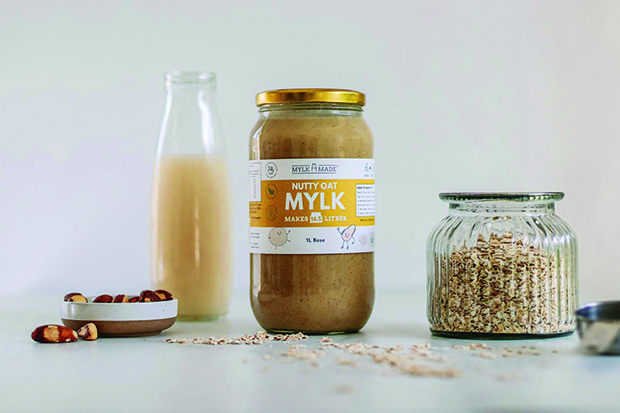
A Christchurch family is grinding away at a fresh solution to the plastic waste caused by plant-milk containers.
Words: Sarah Templeton
Jemma Turner’s year-long Indonesian surf break was intended as time out, a slower-paced life with her partner Max Delore away from the stresses of the city and her career in project coordination and management. She’d planned to focus on nothing more than the waves.
Inspiration struck during her daily morning coffee run. “At our local café, they ground up whole nuts and seeds to make a mylk base to which they’d add water,” she says.
It was something Jemma had yet to come across. In Aotearoa, almond, oat, coconut, hazelnut and soy — almost all plant-based mylks — are sold in plastic containers. Some come in bottles; others come in cartons made from a mix of plastic, cardboard and metal.
“I couldn’t understand the gap in the market. There wasn’t anything like it here, and it spoke to my problems with plant mylk,” says Jemma. “Often the mylk goes off before you’re even a quarter through a carton or bottle. So you end up only going through half before you have to tip it out. What a waste.”
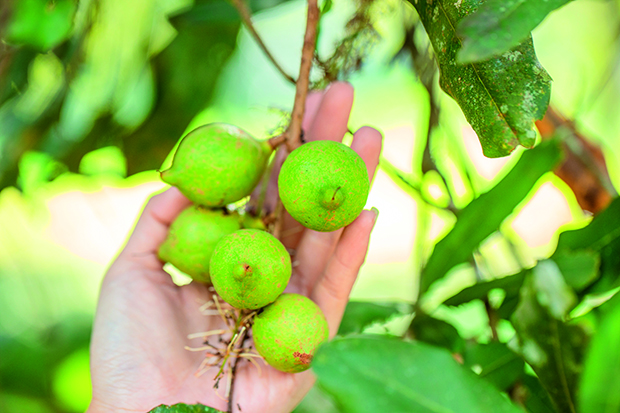
She had plenty of time in Indonesia to think up a business idea. The mental cogs whirred. Mylk Made was borne on the couple’s return to Christchurch. The concept? A series of nut and seed bases that can be blended with water to create plant-based mylk, which can be poured into a glass bottle, jar or container.
“The beauty of a mylk base is that you only make up what you need when needed. The base itself has a 12-month best-before date, and you can keep it in the pantry even when open,” says Jemma.
A 150-millilitre jar makes 2.5 litres of mylk. A litre jar makes more than 16 litres. For cafés and larger-scale operations, a five-litre tub provides more than 80 litres — a fair few almond flat whites. Base flavours and include cashew and vanilla, hazelnut, macadamia and hearty hemp. For the adventurous, there’s even creamy lavender.
And just for the record, mylk is not an unfortunate misspelling but a nickname that describes any milk made from a plant. For some mylk makers, it’s a quiet act of protest to distance themselves from the dairy industry — and vice versa.
Running Mylk Made operations with Jemma is her business partner Corinne, who plays a more vital role than that. She’s also Jemma’s mother and believed in the idea from the start.
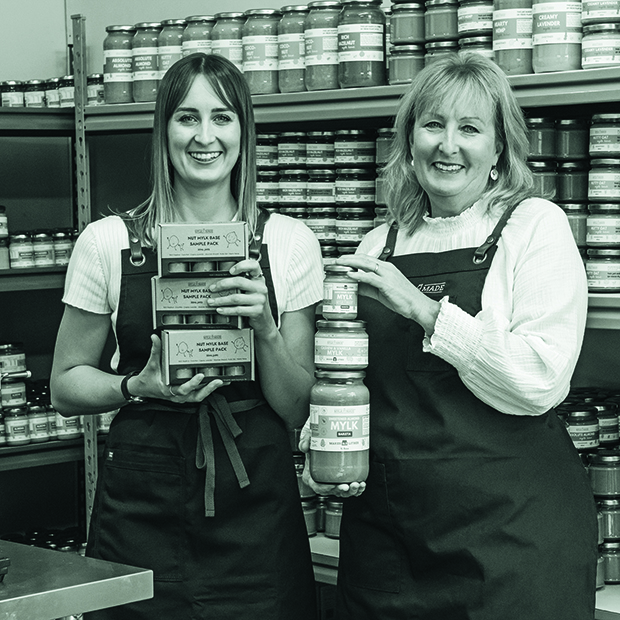
Many might baulk at starting a business with a parent, but it works for Jemma and Corinne.
“We balance each other out and know each other’s strengths… and often exactly what the other is thinking.”
It’s a full-on family affair — plus their plus-ones. Max converted a shed on his in-law’s Rangiora property into a full commercial kitchen. Jemma and Corinne spend every day packing orders, running admin and keeping up with mylk base demand. What sets their product apart, says Jemma, is “bringing it back to basics”.
Many plant-based mylks on supermarket shelves are filled with gums and fillers, which can cause gastrointestinal issues. Jemma is driven by an overall passion for a healthier alternative and for eating simple, whole foods.
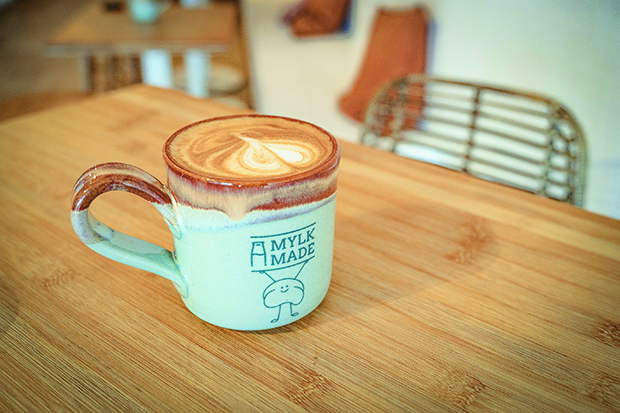
“Things are always a bit overcomplicated now. We wanted to keep it simple — just nuts and seeds. No preservatives, no gums, no binders.”
The bases are made using stone grinders, which Jemma compares to concrete mixers thanks to their giant stone rollers, which grind the nuts over many hours.
“The slow grinding process helps us retain the full nutritional content from the nuts as it keeps them at a low temperature, compared with typical plant-based milks in cartons which are heat-treated,” she says.
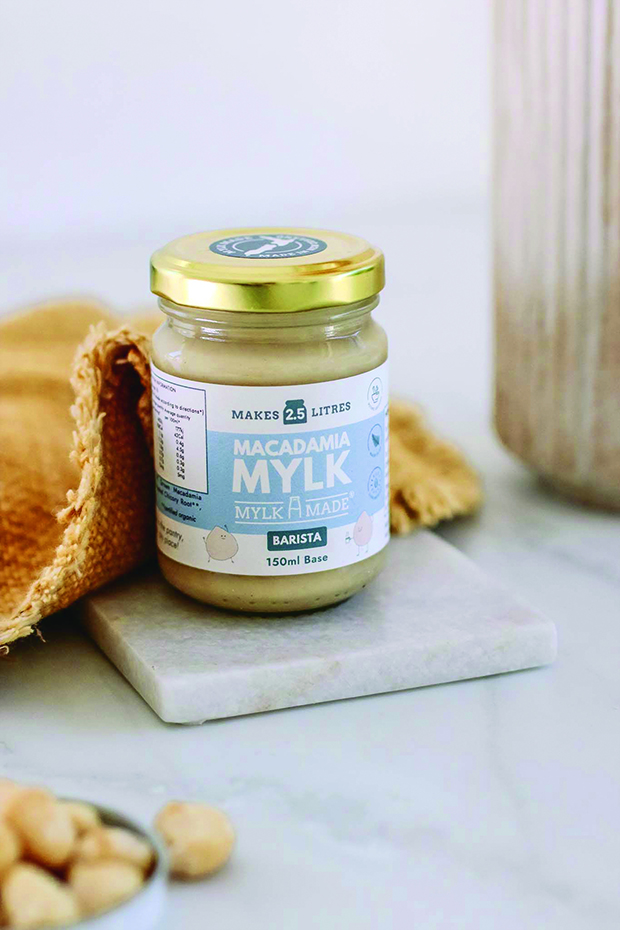
A small 150ml jar of Mylk Made base, blended with water, makes 2.5 litres of mylk. It doesn’t require straining, and will last for four days in the fridge. Flavours include walnut and macadamia. The brand was a multiple winner at this year’s Outstanding NZ Food Producer Awards.
Jemma moved into a full-time role running Mylk Made last year, recently expanding its team to keep up with capacity. She estimates the company has saved more than 120,000 single-use mylk cartons from landfill since operations began.
Where they can, they source locally. The warmer temperatures of the North Island allow them to source hemp seeds and macadamia nuts there (one of their hemp suppliers is also based nearby). Nuts that don’t grow in New Zealand’s notoriously inclement conditions — think almonds and coconuts — are sourced from Australia instead of the United States to cut down on air miles.
Jemma’s dream is to continue expanding Mylk Made’s stockists nationwide while further developing the flavours and varieties of the mylk bases. But no matter how far the reach, getting out for a surf is always the No.1 priority.
“There’s always time to get in the ocean,” says Jemma. Christchurch’s beaches may offer a slightly chillier alternative than the waves of Indonesia but work just as effectively at getting those mental cogs whirring.
Mylk Made Winter Smoothie
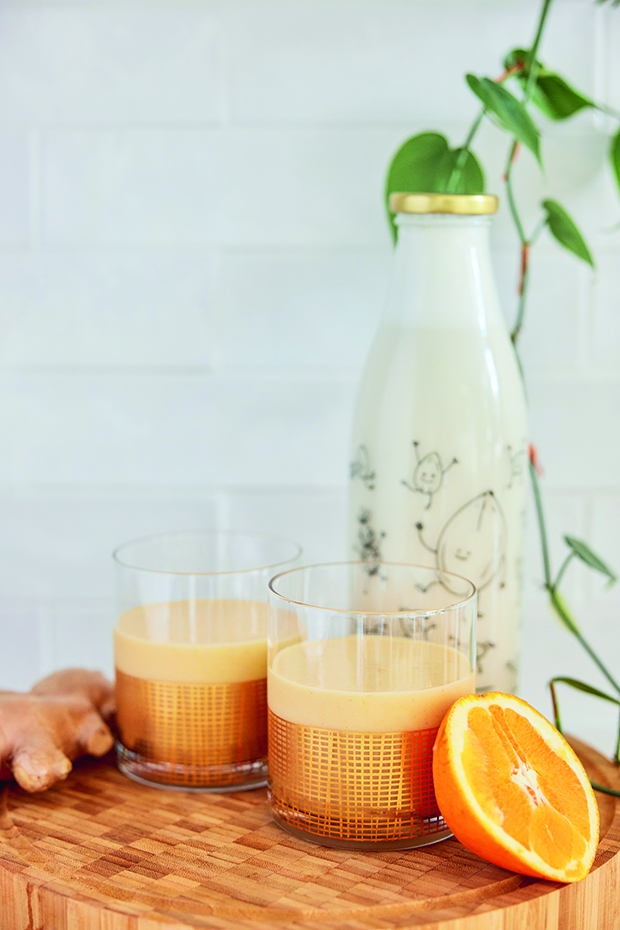
Makes: 2
INGREDIENTS
1 cup Cashew and Vanilla Mylk
½ cup dairy-free yogurt
1 frozen banana
½ cup frozen mango
½ orange
1-2cm piece ginger
1-2cm piece turmeric
METHOD
Blend all the ingredients together and serve. Best when fresh.
Love this story? Subscribe now!
 This article first appeared in NZ Life & Leisure Magazine.
This article first appeared in NZ Life & Leisure Magazine.

